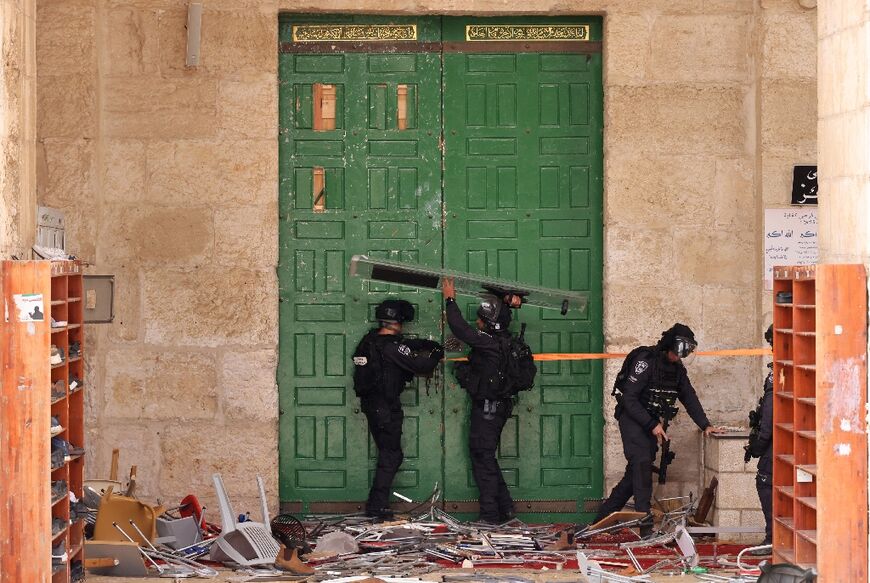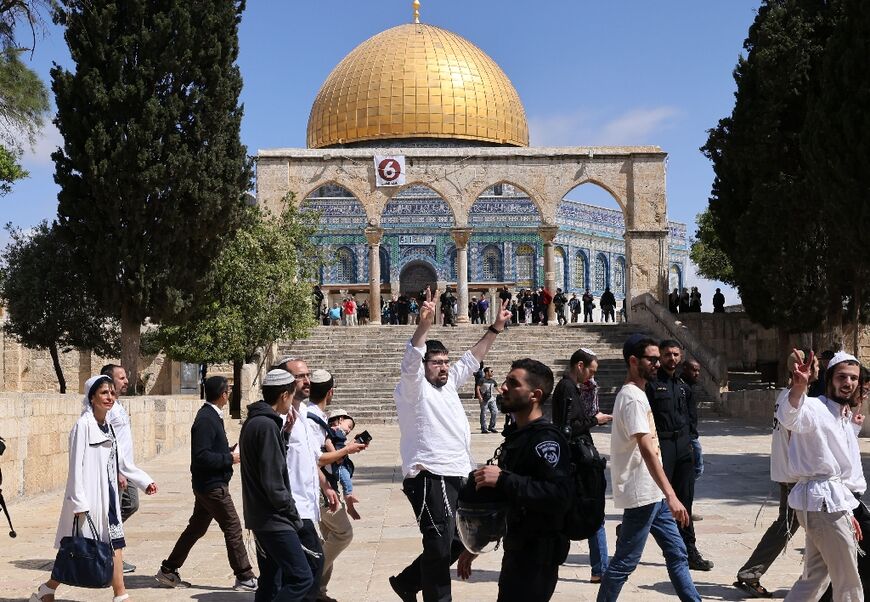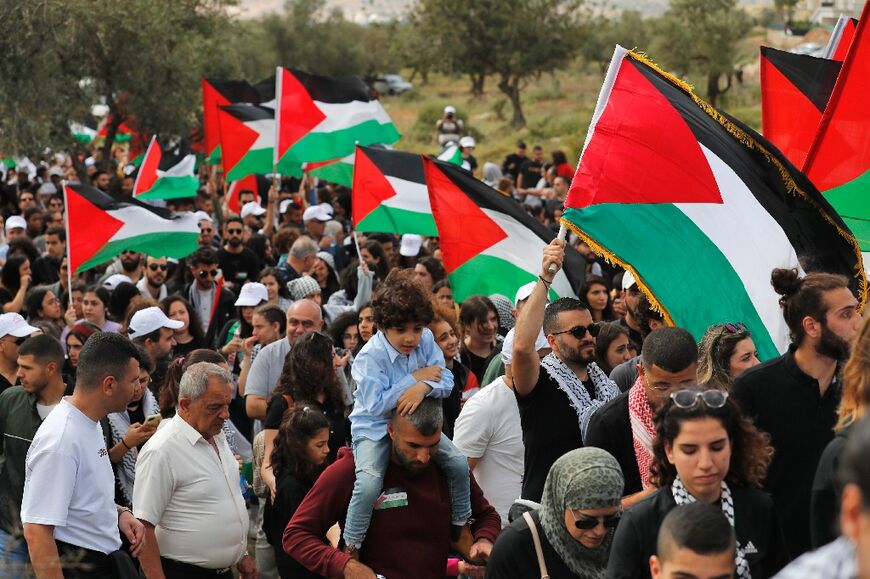New clashes at Jerusalem's Al-Aqsa mosque compound

Calm returned to Jerusalem's Al-Aqsa mosque compound on Thursday afternoon following early-morning clashes between Israelis and Palestinians that shattered a pause over the Muslim Eid al-Fitr holiday.
Israeli police said they had repelled "dozens of rioters" who had been "throwing stones and other objects" at the security forces. Yet, by afternoon prayers, Palestinian mingled in the mosque's courtyard under the mid-day sun, while large numbers of police stood by.
An AFP correspondent said there was a heavy police presence in front of the mosque as groups of Jewish faithful returned to the site for the first time this month.
The clashes came on the anniversary of Israel's 1948 independence and followed a tense period in which the Muslim fasting month of Ramadan, the Jewish festival of Passover and the Christian holiday of Easter overlapped.
Ramadan ended Sunday and was followed by the Eid al-Fitr holiday.
The Palestinian Red Crescent said two people had been injured in Thursday's clashes, which came on the eve of Nakba day on which Palestinians mark the "catastrophe" when more than 700,000 fled or were expelled during the war surrounding Israel's creation.
About 600 Jewish "extremists" converged on the Al-Aqsa compound, the sheikh of Al-Aqsa mosque, Omar al-Kiswani, told AFP.
The Palestinian Foreign Ministry labelled the Israeli actions a "declaration of religious war" while Jordan condemned Israel for allowing Jewish "extremists" to "break into" the compound.
The site is Islam's third-holiest. It is also Judaism's holiest place, known to Jews as the Temple Mount.
Palestinians have been angered by an uptick in Jewish visits to the compound, where by longstanding convention Jews may visit but are not allowed to pray.
Israeli Foreign Minister Yair Lapid has said the Jewish state "will not change" this status quo.
The latest morning violence came following a tense April, in which nearly 300 people were injured in clashes between police and Palestinians at Al-Aqsa. Violence also flared in the occupied West Bank, following attacks in Israel and raids by the Israeli military.
Last week, the Gaza Strip's Islamist rulers Hamas threatened Israel with rockets and synagogue attacks if Israeli forces carried out further raids at Al-Aqsa.
Far-right opposition lawmaker Itamar Ben Gvir, a leading figure behind Jewish efforts to march on the compound, said that the Jewish visits on Thursday proved that "Hamas is a weak organisation that can be easily subdued".
A raid by Israeli police into the compound last month sparked widespread condemnation from regional leaders.
Jordan, which manages Jerusalem's holy sites, accused Israel of upsetting the long-standing status quo which allows all faiths to worship at their sacred sites in the city.
The mounting violence since March 22 has killed 15 people, including an Arab-Israeli police officer and two Ukrainians, in separate attacks inside Israel. Two of the deadly attacks were carried out in the Tel Aviv area by Palestinians.
A total of 27 Palestinians and three Israeli Arabs have died during the same period, among them perpetrators of attacks and those killed by Israeli security forces in West Bank operations.









